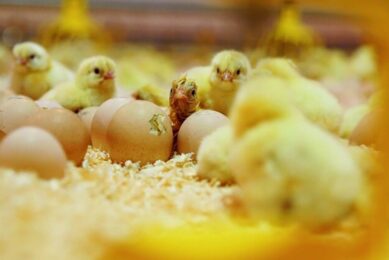US organic egg farm sets high standards
Following a recent investigation which tarnished the image of the US egg industry, humane, environmentally responsible egg farming is more important than ever.
As the only national purveyor of pasture-raised, organic eggs in the US, Vital Farms has stated that it provides the healthiest and most natural environment possible for their birds.
In complete contrast with 98% of all US egg farms, Vital Farms’ hens live outdoors on open pasture, year round, compared to industrial egg farms. Birds have the freedom to move and forage, which results in a far more humane, nutritious and delicious egg.
“As a result, the eggs these hens produce are superior in nutrient content. This is only enhanced by the outdoor lifestyle they enjoy, which is cleaner, less stressful and competitive, and full of Vitamin D courtesy of the sun,” said Jason Jones, Vital Farms President and COO.
“When the consumer thinks of free range, they think the chickens are out running around in pasture but that’s not usually the case. Laying hens should live outdoors and have access to shelter, rather than the other way around – living indoors with supposed access to the outdoors,” continued Jones.
Vital Farms eggs come from 14 family farms located in Texas, Arkansas, Oklahoma and Georgia. Each farm follows strict standards of pasture raising and organic farming, which include moving birds frequently onto fresh, Certified Organic pasture and allowing birds to exhibit their natural behaviors; running, perching, wing flapping, foraging and roosting.
Recently the National Organic Standards Board voted unanimously to require 2 square feet of outdoor space, with at least 50% vegetative cover, for laying hens. In addition, they increased the inside space requirement to 2 sq ft (up from 1.2 sq ft.). This is a huge increase from no legal requirement for outdoor access for organic hens, as was previously the case.
Source: Vital Farms
Join 31,000+ subscribers
Subscribe to our newsletter to stay updated about all the need-to-know content in the poultry sector, three times a week. Beheer
Beheer








 WP Admin
WP Admin  Bewerk bericht
Bewerk bericht